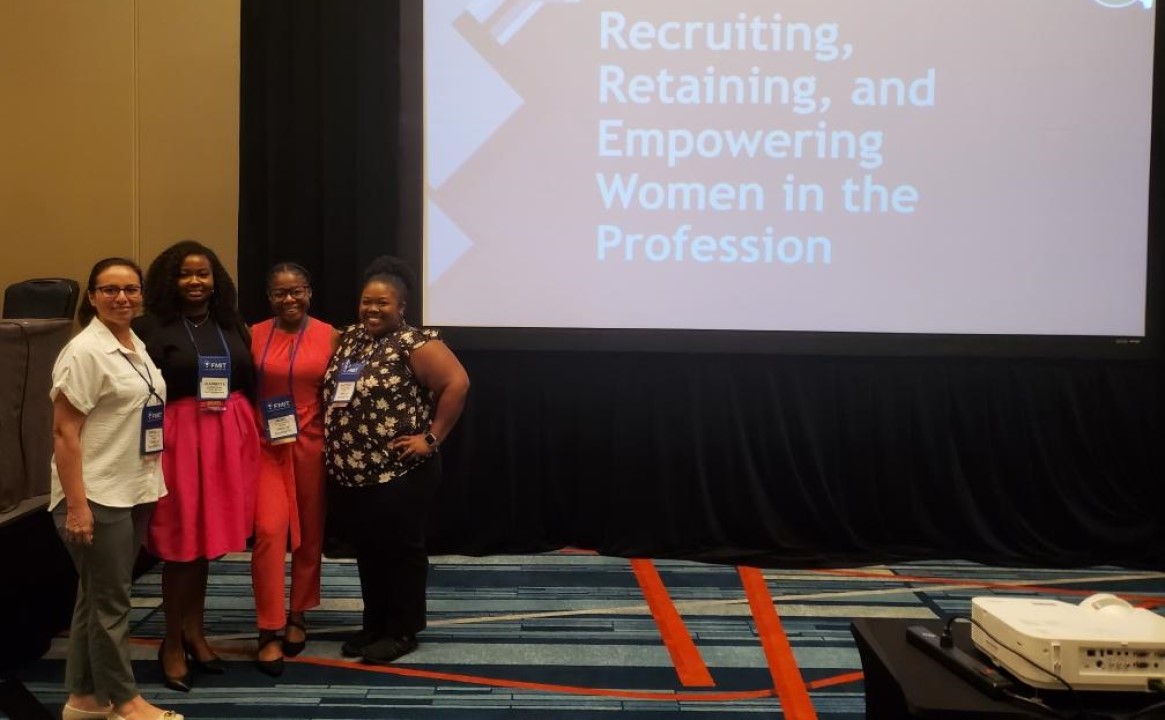
The Florida City and County Management Association (FCCMA) held their first women-focused session at their annual conference in June in Orlando, Florida. The session was titled, “Recruiting, Retaining, and Empowering Women in the Profession.”
I am so proud to have created, organized, and moderated this incredible session and to have been a part of this historic event that brought together city and county managers, students, and women just beginning their local government career. We had the opportunity to hear invaluable advice from our panel and hear stories of resilience from our engaged audience. This session was needed as was evident from the excitement of the crowd. Creating inclusive sessions will have the potential to produce an overall sense of belonging at a conference and improve engagement. So, how did we create this session?
Building Your Session
First, we established a session theme and title. One of local government’s most pressing issues is our ability to recruit and retain talent. We lost droves of workers in the Great Resignation and women were disproportionately displaced after the pandemic, some never returning to the workplace. We thought it was fitting to name the session, “Recruiting, Retaining, and Empowering Women in the Profession.”
Next, we put together a subcommittee of passionate professionals who would all like to see more equity and inclusion in local government: Sarah Campbell (city manager, Orange Park); Rebecca Flora (supervisor, Lee County); Sally Sherman (assistant county administrator, Pasco County); and myself.
We also worked together to craft the perfect panel:
- Gillian Barth, director of people and culture, Palm Beach.
- Treasa Brown-Stubbs, city manager, Lauderdale Lakes.
- Laura Savage, senior program manager of equity and inclusion, ICMA.
- Heidi Voorhees, president and co-owner, GovHR USA.
The session focused on the challenges that women face in the workplace. We delved into the intersections of women in leadership, including the unique challenges of women of color, the steps women could take to become CAO if they so choose, and ways in which the profession must adapt to recruit and retain women in local government. Most importantly, we explored ways we could foster the next generation of women leaders.
Motivating Your Crowd
To get the crowd motivated, we put together a snowball challenge. Audience members were asked to write three things about themselves on a piece of paper, crumble the paper, and throw it across the room. We asked that the three things be something that could be shared with the others. Then, participants had the opportunity to pick up a “snowball” and share what another audience member wrote. It brought me immense joy to see the excitement of our audience during the challenge. In addition, our panel members were authentic and personable, and they were well-received by our audience.
Lessons Learned
What stood out to me the most was the eagerness of audience members to stand and share their experiences. We heard from MPA students at my alma alter, the University of Central Florida; we heard from ACAOs; and we heard from the few men who were brave enough to attend our session. One of the students brought up an interesting question: Why aren’t we asking Gen Z what they want in the workplace or their expectations for the profession? I learned that we must adapt and find new ways to reach Gen Z and younger millennials. Half of the U.S. workforce is made up of millennials and the generational differences in organizations have caused a rift. Public service employees are leaving local government for the private sector in search of higher-paying jobs, promotional opportunities, and organizations that are committed to diversity, equity, inclusion, and accessibility (DEIA).
The next generation is watching how we treat women in the profession. They are interested in organizations that are equitable, sustainable, and focused on innovation. Municipalities all over the United States are finding difficulty in recruiting and retaining talent, but these organizations are not asking their employees what they need. People need an employer they can trust so they feel psychologically safe to share their ideas. These new ideas will create opportunities for growth and ingenuity. Organizations must focus on the culture of their workplace first before recruiting new people. A public organization with an inequitable culture will suffer the consequences of losing its talent to the private sector. Building programs that foster a sense of belonging will create inclusive environments and truly empower women and the rest of your employees.
Hopefully, we can keep up this momentum of having inclusive sessions at local government-related conferences all over the country.

JEANNETTA MAXENA is a Local Government 2030 delegate and a local government professional in the South Florida region.
New, Reduced Membership Dues
A new, reduced dues rate is available for CAOs/ACAOs, along with additional discounts for those in smaller communities, has been implemented. Learn more and be sure to join or renew today!
